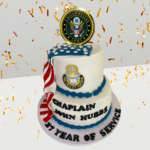By John Harrell
“10,000 Reasons” was still here over the summer. Matt Redman’s song hit No. 12 on the CCLI chart in July, not bad for a song that released when some of today’s teenagers were born.
Staying power on that order means that your church — like many, many others — will keep on singing it. (Satire from The Babylon Bee: “Local Church Sings ‘10,000 Reasons’ For 10,000th Time.” That was eight years ago.)
Try this experiment: Ask a few millennial or Gen X believers how to complete the line “Bless the Lord, O my soul, O my soul” (answer: “worship His holy name”). Bonus points if they can get all the way to “sing like never before” or the predicate change in “I’ll worship Your holy name,” and a Daily Double if they know the verses.
Now try this one: Ask the same believers, or yourself, what the main point of your pastor’s sermon was two Sundays ago. If they draw blanks, which they probably will, they will have proved an important axiom:
Pastors aren’t the most influential teachers in a congregation. Worship leaders are. To be more precise, worship programmers (the ones who pick the music) have more teaching power than any other member of a fellowship, period, and their lessons will lodge deeper in the human person and shoot out more leaves in how its people live.
Sticky Songs
There are reasons. Psychology has known for a long time that setting an idea to music can make words sticky in the mind. Baby boomers will remember the preamble to the U.S. Constitution to their dying days thanks to the 1970s “Schoolhouse Rock!” number that set it to Carly Simon-esque folksiness. Millennials who grew up on Nickelodeon or PBS know that SpongeBob “lives in a pineapple under the sea,” or that one of Boston’s ZIP Codes is 02134 thanks to “ZOOM,” the kids’ show. Gen X PBSers will know that the line “Where in the world is” should be completed by the name “Carmen Sandiego,” and retirees can complete the phrase “I’d like to buy the world a” with the correct beverage.
Christian formation works the same way. Standing in line at the grocery store at 1 p.m. on a Thursday, a worshipper might not remember the details of a pastor’s exegetical discourse on 2 Corinthians 5 from the weekend but will have internalized, by humming it, that the Lord “looks at me and wouldn’t change a thing,” thanks to Megan Woods’ debut single from 2024, which might have played on K-LOVE a few minutes before.
When sticky music works, it works well. Christians, including Methodists, can rejoice that John Newton’s “Amazing Grace” is so deeply lodged in the zeitgeist. “I … now am found” captures Jesus’ capture of us by pursuit (prevenient grace) and restoration for a “wretch” that was “saved” (justifying grace). Chris Tomlin’s line “all creation cries ‘holy’” — his “Holy Forever” was CCLI’s No. 1 song all four weeks in July — is a timely reminder that humans aren’t the only, tiny target of God’s restorative work.
Such counterbalances are good, because bad ideas also get through when we’re not careful. “10,000 Reasons” offers hope. It also teaches that our flesh and blood are pointless: Once we’re dead, “still my soul will sing Your praise unending.” Dualism is a high-fructose substitute for the protein of faith: Isn’t the body going to be resurrected too? “I don’t have to hold on,” says another, “coz’ you don’t let go” — never mind Satan sifting one of the disciples like wheat, the Lord’s exhortation to “be strong and courageous” (Joshua 1:9), Paul’s lament that some “have wandered away from the faith” (1 Timothy 6:10), and, certainly for Methodists, the doctrine of God’s sanctifying grace that makes us more like Him, that is holier over time.
And while in a sense, as Megan Woods beautifully exhorts us about the King, “He looks at me and wouldn’t change a thing,” the refrain leaves out how. Without theological precision, of which the song is sparse, worshippers humming the lyric during the week can conclude that God adores and endorses our status quo. There’s no context. Cancer patients might hope the words are in error. Thieves might hope they aren’t.
_
“Pastors and worship programmers hold the keys to Christians’ minds and muscle memories in the music that they select and screen, together.”
_
Picking With Precision
Words and ideas matter. Missional, exegetical preaching from God’s Word is crucial: It is an act of vocational negligence when pastors outsource their mandate to order the church’s life by slumping such duties onto worship leaders to pick whatever they want.
Pastors and worship programmers hold the keys to Christians’ minds and muscle memories in the music that they select and screen, together. Best to examine, weekly if necessary, the doctrines that believers would pick up, intended or not, from a set of songs or hymns — testing it for its soundness for forming, informing, and transforming believers in accordance with God’s revealed truth — never mind its play on Air1 or Spotify.
The folks who pick the songs shape us at a level deep, deep down the brain stem where we remember our grandmas’ lullabies. For the sake of the Lord and His mission, let’s choose with precision, singing like we believe that for 10,000 years our bodies will sing His praise unending.
Editor’s note: Author John Harrell attempted to interview Megan Woods about the meaning of the lyrics “He looks at me and wouldn’t change a thing” in the song “The Truth,” but he did not receive a response from her manager in time for this article’s deadline.
+

John Harrell is an elder in the Wabash/New South Conference of the Free Methodist Church USA.










